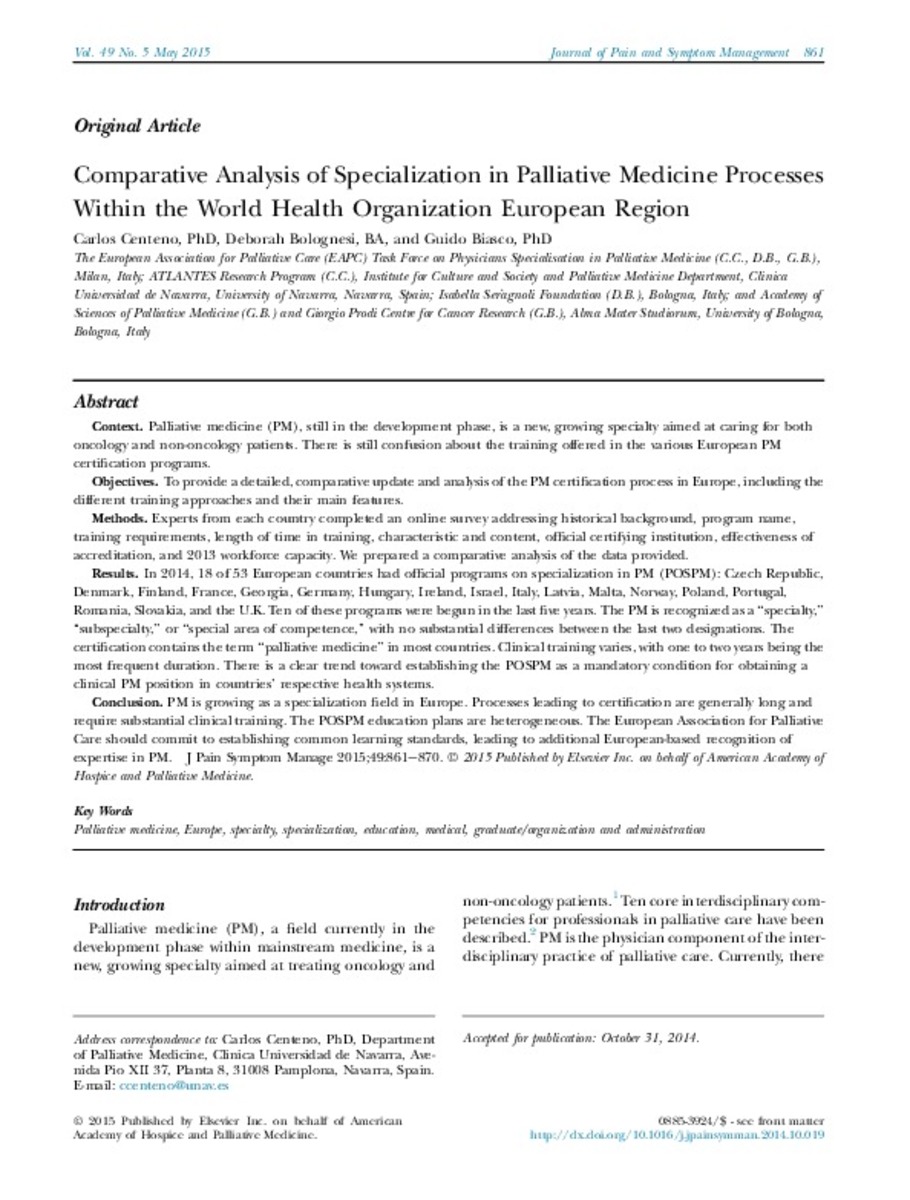Comparative analysis of specialization in palliative medicine processes within the World Health Organization European region
Files in This Item:
Statistics and impact
Items in Dadun are protected by copyright, with all rights reserved, unless otherwise indicated.











